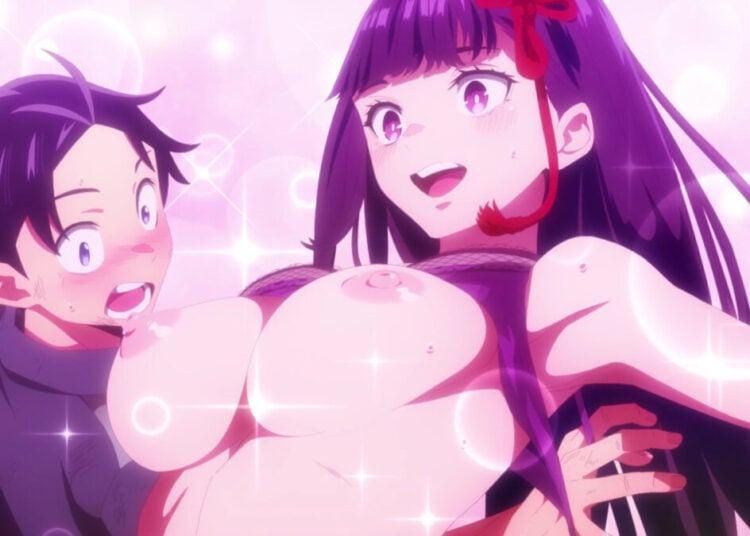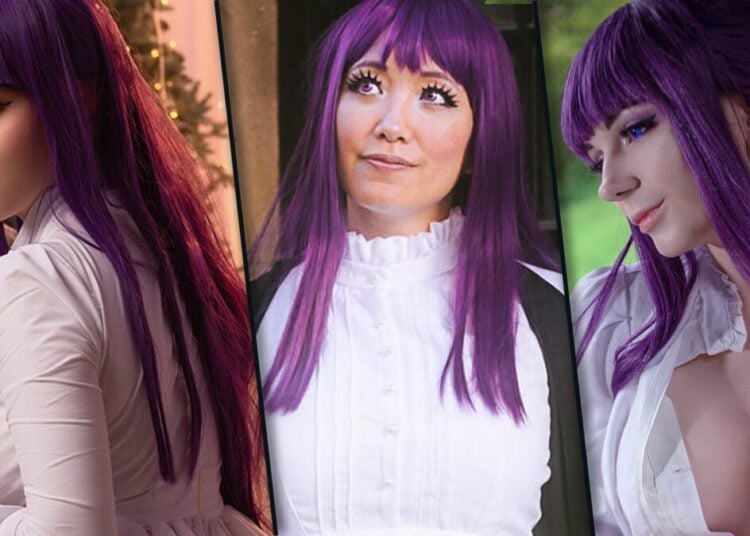The very first time I heard about the 2006 anime adaptation of Bartender was actually from the Anime News Nina webcomic in 2010 and then proceeded to almost entirely forget about it by simply tucking it away into the back of my mind as a “someday” series since I wasn’t willing to download fansubs for it. Therefore, I was thrilled when I learned through random happenstance that Crunchyroll had uploaded the eleven-episode series to their catalog with little fanfare or mention. Now that I’ve had a chance to watch it, I have to wonder why it took so long to be licensed and why I was forced to wait so long to watch it.
In this series from Palm Studio (which sadly went defunct only a year after this series was released), the main character is a bartender named Ryu Sasakura who works at Eden hall and is known as “the glass of the gods,” a bartender who can always serve the drink that is most appropriate for whichever customer is in front of him. In each episode, Sasakura faces a customer dealing with a unique kind of problem, leading him to help them see their situation in an entirely new light with the power of a good drink.
Bartender is a solid series from start to finish in its episodic storytelling. Classified as a seinen iyashikei (healing anime aimed at young and adult men), this is a truly calming experience for adults who understand that while drinking to excess isn’t the answer to life’s challenges, the right amount of alcohol at the exact right time can be calming and sometimes even therapeutic for the mind.
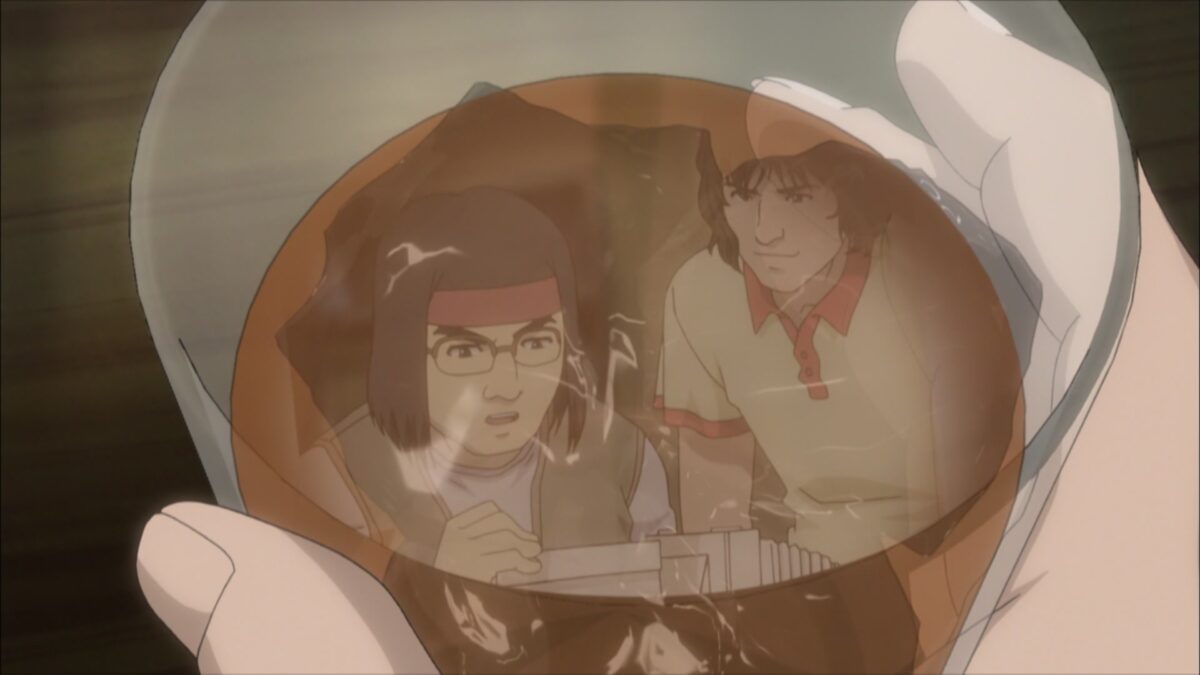
Using multiple storytelling styles, including a narrator, voice-over from a regular bar patron, half-screen staging, and other forms of narrative blocking, this is a series that isn’t afraid to be experimental to get its point across. Admittedly, it takes a couple of episodes to get used to the juxtaposition of different methods. But I found it easy to settle in and let the series cast its magic spell on me as I continued through each episode.
Part of what makes this series so engaging and believable is the attention to detail that creates a comfortable atmosphere in each episode. From the soft piano background music composed by Kaoruko Ōtake to the simple animation style from a bygone era (the only CG animation in this series that I could detect was for the moments when Sasakura is crafting that episode’s specific drink), every episode makes you feel like Eden hall is genuinely a place that you could have a quiet drink to ease your mind after a hard day at work.
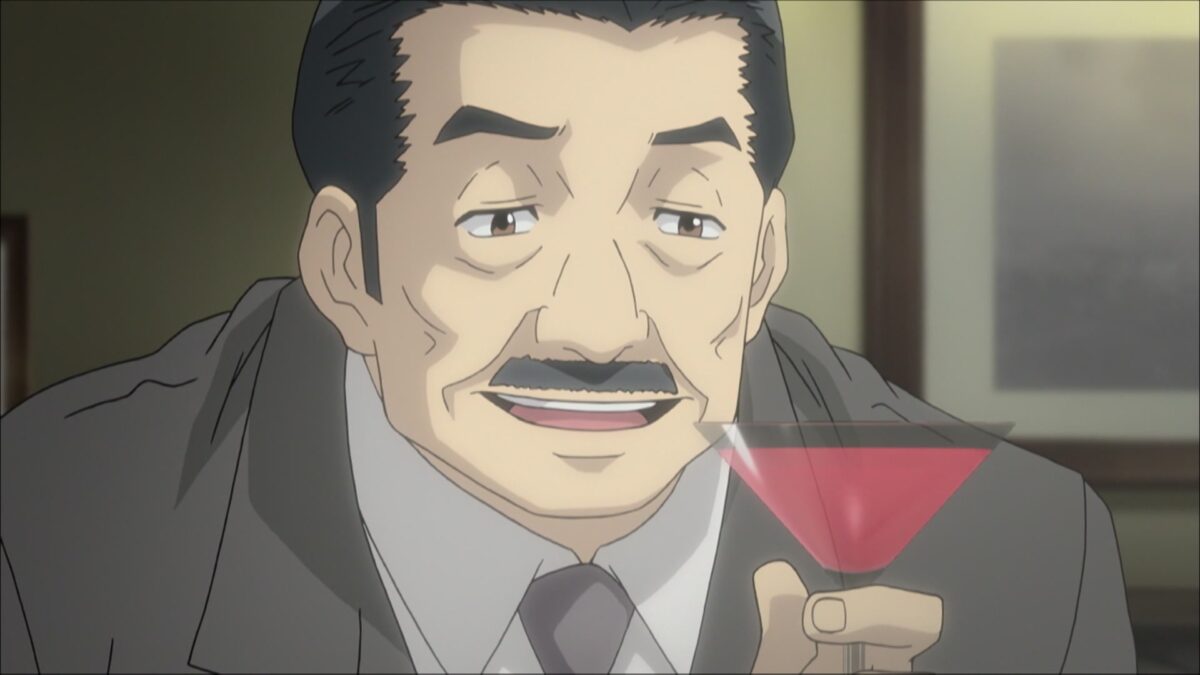
While some people have lambasted Bartender and called the idea of solving people’s problems through alcohol silly, it’s worth noting that Japanese audiences loved this series and rewarded the series finale with a high television rating. This might be partly because of the different attitudes toward drinking in Asia as opposed to the United States, which went through its period of temperance and prohibition.
To say that Bartender encourages people to solve their problems through alcohol feels a little short-sighted. While Sasakura supplies his customers with the perfect drink for that moment in their lives, he never encourages people to drink in excess, nor does he try to swindle customers out of more money after they’ve had their drinks. For example, in one episode, he questions another senior bartender about taking large amounts of money from a customer who has fallen on hard times until he learns the full circumstances of that customer. Sasakura is the embodiment of the wise-beyond-his-years barkeep trope. As he serves each drink, he shares the cocktail’s history and why he feels it is the perfect choice for that occasion. This leads to many educational segments as the audience is taken to various parts of the world and told about the rich history of each cocktail being served.
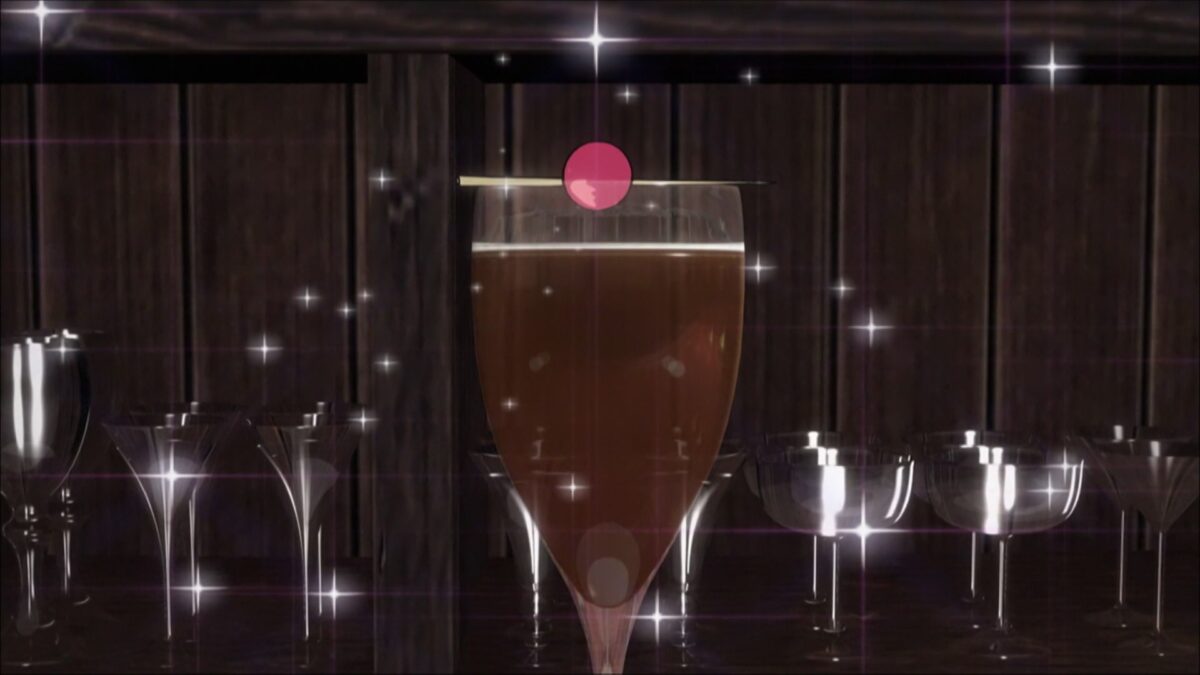
At first, we could see this as a simple sleight-of-hand storytelling method where the audience is fed a bunch of unrelated information to fill time in each episode. However, Bartender makes it work through the careful use of actual brand names of alcohol and speaking directly of the conditions of the world when that alcohol was distilled. In one episode, the story of a specific whisky from 1945 is shared, and how that year was significant because the distillers had to use peat to heat their brew because of a coal shortage in their region after the war. In another episode, the audience is treated to the story of Old Parr and why it is considered a traditional favorite of Japanese politicians, which has to do with European traders.
Bartender is a series where the more I watched, the less I wanted to finish it because I knew that once the ending credits of episode eleven finished, there would be no more for me to watch. While they recently announced a brand new adaptation in production, I’m already filled with reserved fears it will fail to capture the simple magic of the original 2006 adaptation of the manga. A product of its time, Bartender was a simple slice of life that didn’t overwhelm the audience with flashy special effects or an overly complicated narrative. If you’re interested in seeing a wonderful series from over a decade ago that took way too long to be licensed in the west by anyone, then this is a solid choice to relax with.


